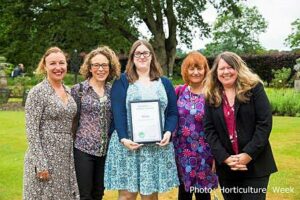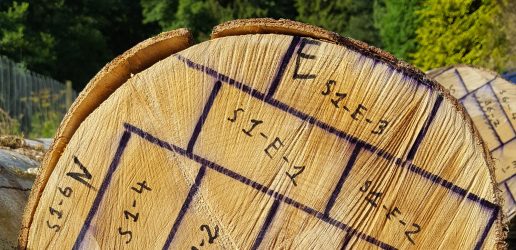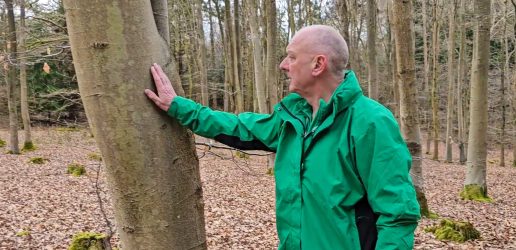The project was named the best community/volunteer initiative at the Horticulture Week awards at Woburn Abbey on 28th of June 2017. The nomination was for the fantastic work the project’s volunteers did following the oriental chestnut gall wasp outbreak and for their wider surveillance activities. They received the award from Lord Heseltine.

Observatree is an innovative project which began in autumn 2013 to set up a new UK tree health early warning system using citizen science. It has a network of 230 volunteers who have undergone extensive training in subjects such as tree identification, pest and disease recognition, surveying, sampling, observational skills and GPS and mapping. The ongoing training has allowed the skills, competence and confidence of the volunteers to grow as the project has progressed and has enabled them to be really effective in their tree health activities. The volunteers’ role is to support Government tree health officers and scientists by undertaking survey work and helping with the processing and verifying of tree health reports received from the public.
As well as reporting individual cases of pests and diseases the volunteers also conducted surveys focused on specific pests and diseases. For example, in June 2015 when the first case of Oriental Chestnut Gall Wasp (OCGW) was recorded in the UK, the Forestry Commission asked the Observatree volunteers to help with the survey of sweet chestnut trees to identify other outbreak sites. They submitted more than 200 reports on Sweet Chestnut within a few weeks.
Amanda Yorweth, a volunteer tree health surveyor from St Albans, found and reported the second outbreak site of OCGW enabling action to be taken which prevented the spread of the pest.
The project’s investment in management, training and support for the volunteers has really paid off and has resulted in a well organised network of highly skilled volunteers. For this to be recognised by winning the award has been a real achievement for this pioneering project.

Forest Research, in partnership with Edinburgh Napier University, have taken a first step in systematically assessing the timber potential of underutilised species in the UK.
Tree professionals working in arboriculture are being asked to take part in a new tree health survey as part of a DEFRA-funded project looking at pathways and practices concerning the tree disease, canker stain of plane.

Nature, the world’s leading multidisciplinary science journal, has published findings from a new global study investigating which tree species fix the most carbon.

Forest Research, in partnership with Edinburgh Napier University, have taken a first step in systematically assessing the timber potential of underutilised species in the UK.
Tree professionals working in arboriculture are being asked to take part in a new tree health survey as part of a DEFRA-funded project looking at pathways and practices concerning the tree disease, canker stain of plane.

Nature, the world’s leading multidisciplinary science journal, has published findings from a new global study investigating which tree species fix the most carbon.